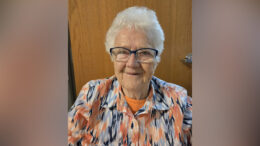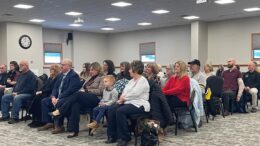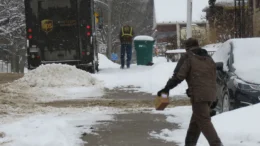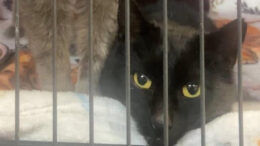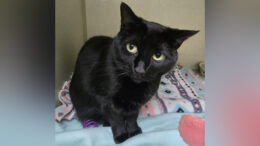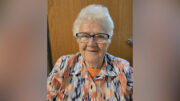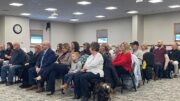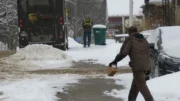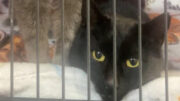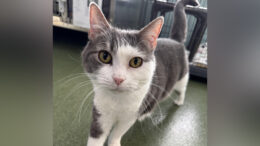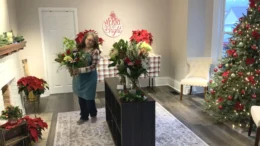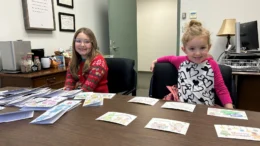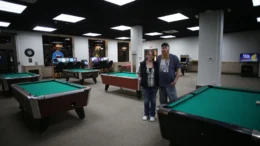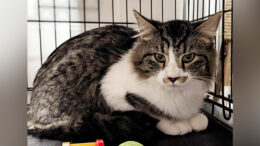The COVID-19 pandemic has made things difficult for the region’s nonprofits for about the past 14 months.
Some brick-and-mortar organizations were forced to close, and other traditional organizations were severely limited in the type of in-person events they could hold.
Clarion Salvation Army
“We had very few bell ringers,” said Renee Vowinckel, the organization’s director. “They are volunteers and they are very important to our giving campaign. Many of them were concerned about the COVID pandemic.”
The lack of volunteers cut into the donations the Salvation Army received. “Our giving was down, but better than what we thought it would be,” Vowinckel said. “In 2019, we received $25,484 and in 2020 we had donations of $20,450; so it was just about (a one-year decrease of) $5,000.”
To counter the loss of in-person donations, the Salvation Army had to improvise.
“We send out letters to organizations, and in 2020 we sent more letters. We knew we were going to have less giving,” Vowinckel said. “We give until we run out of money.”
That, she said, could “end our program before September, which is the end of our year. October begins our new year.”
Looking ahead, Vowinckel said the Salvation Army hopes to have a better year in 2021, which would include more volunteers to go along with Gov. Tom Wolf’s order to lift the masks mandate by June 28.
“It has been a challenging year,” she said.
Venango County United Way
The Venango County United Way also has had its share of challenges in meeting fundraising goals amid the pandemic.
However, Will Price, the organization’s executive director, said the community rallied around the United Way. Its annual “giving” fundraising raised $704,819 last year. The annual event to announce the amount of money raised was held as a virtual event this year.
“All nonprofits had to think outside the box and be creative,” he said. “We launched an online raffle after we realized we were going to lose some of our major events. You have to think fast to make up for those dollars.”
Price said the increased funding helped the United Way fulfill needs and address the long-term effects of COVID-19, especially for those who are not working and are one paycheck or one crisis away from the poverty level.
“Our community is very supportive of all nonprofits,” he said. “We have a very giving community.”
During the pandemic, Price said, the United Way got back to “our grassroots,” to when the organization was established as the “Community Chest” to help families affected by war.
“When COVID hit, we were able to go back to that and really got active in helping our communities,” he said. “We did a lot of mask and hand sanitizer distribution. We did learning hubs and milk drives. We did programming and were helping individuals. We started those programs right away.”
Clarion PAWS
For animal shelters, like Clarion PAWS, the pandemic was a unique challenge.
“It has been difficult since we were not able to have fundraisers,” said Sharon Weaver, director of the Shippenville-based feline adoption center.
“We did a few online things like an auction. We had a few unexpected donations, because people who got the stimulus felt like they should share a little of it. We have a few people who do monthly donations.”
The good news is that the pet adoptions “seem to be going the same,” according to Weaver.
“We were actually closed. We have a handful of volunteers. If one of us had gotten sick we would have been in trouble,” she said.
Only recently has Clarion PAWS started to allow volunteers to come back on every shift.
“We always need volunteers,” Weaver said. “We always had some college kids, but they weren’t here this past year. Some of the kids do it for extra credit, but others just do it because they want to.”
Jefferson County Historical Society
Although the facilities at the Jefferson County Historical Society in Brookville were closed during the COVID-19 pandemic, that didn’t mean the society had shut down.
Through a combination of grants, donations and economic measures, the JCHS met its goals for 2020, upgraded several exhibits and worked on its collection.
“It was pretty slow,” said Ken Burkett, the society’s executive director. “Fortunately, our members continued to be members. We did publish our three newsletters and our annual journal. Our annual giving campaign was as good if not better than it always has been.
“I think our donors understood our situation and I think that helped our donations.”
A key component to survival was grants.
“The grants kept us from closing,” said Kat Lyons, the administrative assistant and grant writer for the society, of the funds, which included a Small Business Administration loan “because at that time we didn’t know what else was coming down the pike.”
Being financially solvent wasn’t the only challenge.
“The biggest thing was that we could not be open to bring people into the museum,” Burkett said. “We literally had to close the doors under the governor’s order.
“We canceled all of our events except the bicycle ride. We were able to have the military show last spring before everything closed down. The biggest things we lost were our gun show and the annual raffle.”
The JCHS also couldn’t participate in community activities.
“We cut back everything we could -the heating, lighting, but the buildings have to be maintained,” Burkett said. “We were out of sight and out of mind.”
Lyons said having the schoolchildren visit is huge to the JCHS.
“In 2019, we had 120 kids visit. They spend a lot in the gift shop,” she said.
In addition to the two-story History Center, the JCHS operates Scripture Rocks Park, which was open all summer.
“It actually was well used because people just wanted to get out of the house,” Burkett said. “We could not do group tours; so our income from that was minimal.”
However, he said, “As far as interaction with the community, it has been a loss for the whole year.”
Burkett said the JCHS is anticipating a full schedule of activities in summer and fall.
“Hopefully, things will be open by then, but we will follow any state mandates,” he said.
“Our first event will be our military show on June 5. It won’t be normal, but it will be better than what it is now.”


